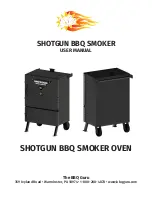
Tested for you in our cooking studio
en
23
succulent and browns less. Depending on the method
of preparation and the type of food, it is possible to
save energy. If you open the appliance door before the
food has finished cooking or if you preheat the
appliance, you are not able to achieve this result.
Only use genuine accessories for your appliance.
These have been tailored to the cooking compartment
and the types of heating of your appliance. Remove any
accessories that are not being used from the cooking
compartment.
Place the food into the empty cooking compartment
before the oven has heated up. Select a temperature of
between 120 °C and 250 °C. Always keep the
appliance door closed when cooking. Only cook on one
level.
The top/bottom heating gentle is used to measure both
the energy consumption in air recirculation mode and
the energy efficiency class.
Baking on one level
When baking on one level, use the following shelf
positions:
■
Position 2 – tall baked items and tins/dishes on the
wire rack
■
Position 3 – shallow baked items and baking trays
Accessories
Only use original accessories supplied with your
appliance. These have been tailored to the cooking
compartment and the operating modes of your
appliance.
Ensure that you always use suitable accessories and
that they are placed in the oven the right way around.
Greaseproof paper
Only use greaseproof paper that is suitable for the
selected temperature. Always cut greaseproof paper to
size.
Cakes and pastries
Your appliance offers you a range of heating types for
the preparation of cakes and small baked items. You
can find the ideal settings for many dishes in the
settings tables.
Also refer to the notes in the section on allowing dough
to rise.
Baking tins
For optimal cooking results, we recommend using dark-
coloured metal baking tins.
Tinplate baking tins, ceramic dishes and glass dishes
extend baking time and mean that the baked item will
not brown evenly.
If you are using silicone moulds, follow the
manufacturer's instructions and recipes. Silicone
moulds are often smaller than normal baking tins.
Quantity and recipe specifications may vary.
Frozen products
Do not use frozen products that are heavily frosted.
Remove any ice on the food.
Some frozen products may be unevenly pre-baked.
Uneven browning may remain even after baking.
Bread and rolls
Caution!
Never pour water into the hot cooking compartment or
place cookware containing water onto the bottom of the
cooking compartment. The change in temperature can
cause damage to the enamel.
Some food turns out better if it is baked in several
stages. These dishes are indicated in the table.
The setting values for bread dough apply to both dough
placed on a baking tray and dough placed in a loaf tin.
Cakes in tins
Dish
Accessories/cookware
Shelf posi-
tion
Heating
function
Tempera-
ture in °C
Cooking
time in
min
Sponge cake, simple
Vienna ring tin/loaf tin
2
8
160-180
50-60
Sponge cake, delicate
Vienna ring tin/loaf tin
2
%
150-170
60-80
Sponge flan base
Flan tin
3
%
160-180
30-40
Fruit tart or cheesecake with shortcrust pastry
base
26 cm springform cake tin
2
%
160-180
70-90
Tart
Tart dish or tin
1
%
200-240
25-50
Scones
28 cm springform cake tin
2
%
160-180
25-35
Bundt cake
Bundt cake tin
2
%
150-170
60-80
3-egg fatless sponge cake
26 cm springform cake tin
2
8
160-180
30-40
6-egg fatless sponge cake
28 cm springform cake tin
2
8
160-180
35-45
Содержание HQ0P00020U
Страница 2: ......










































